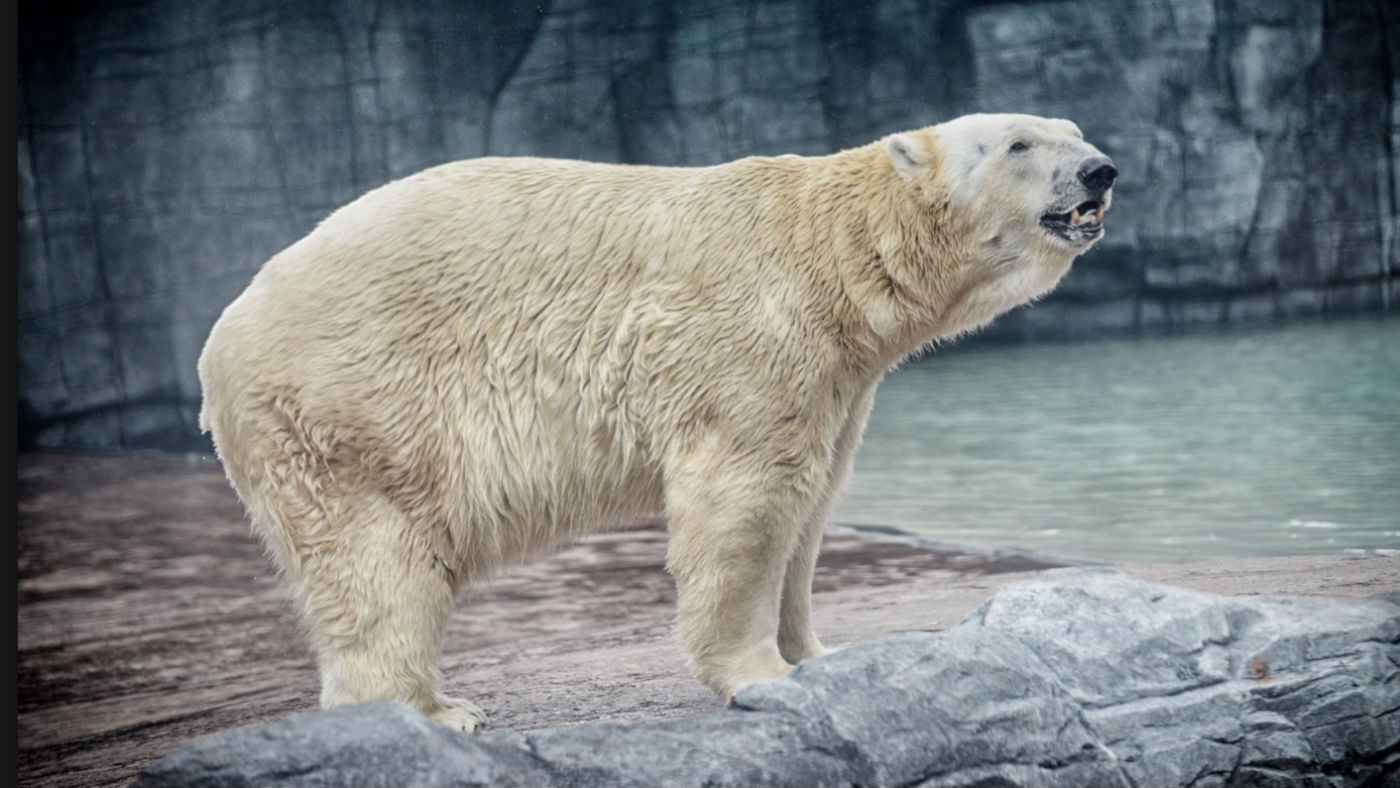RIP Inuka: Singapore’s ‘tropical polar bear’ dies aged 27
Bear was beloved by island nation - but many questioned ethics of his captivity

A free daily email with the biggest news stories of the day – and the best features from TheWeek.com
You are now subscribed
Your newsletter sign-up was successful
The world’s first “tropical polar bear” has died in Singapore at the age of 27.
In a Facebook post on Wednesday, Wildlife Reserves Singapore, which manages the Singapore Zoo in Mandai, announced that Inuka had been allowed to pass away under anesthesia on medical advice.
Inuka was Singapore’s first ever native polar bear, born in 1990 to a mother raised in captivity in Germany and a father captured in the wild in Canada.
The Week
Escape your echo chamber. Get the facts behind the news, plus analysis from multiple perspectives.

Sign up for The Week's Free Newsletters
From our morning news briefing to a weekly Good News Newsletter, get the best of The Week delivered directly to your inbox.
From our morning news briefing to a weekly Good News Newsletter, get the best of The Week delivered directly to your inbox.
His name, meaning ‘foreboding strength’ in Inuit, was chosen by a public contest, and at the age of three Inuka “was chosen as one of the city’s icons by its main broadsheet, the Straits Times, alongside the Singapore Sling cocktail”, Reuters reports.
For nearly three decades, he was a local celebrity, entertaining visitors with his playful nature, says the South China Morning Post.
“Singaporeans have known Inuka from the time he was a cub, and have seen him growing up and ageing,” said zookeeper Mohan Ponichamy.
“It has been a privilege and honour being his caregiver, but difficult as it may be, it would not have been fair to prolong his suffering.”
A free daily email with the biggest news stories of the day – and the best features from TheWeek.com
Despite spending his life in a distinctly non-polar climate, Inuka lived two years longer than the average lifespan of a polar bear in captivity and around ten years longer than a bear in the wild.
Inuka, whose mother lived to the age of 35, “had been on a ‘seniors programme’ at the zoo for the past five years, to help elderly animals deal with the effects of ageing,” the South China Morning Post reports.
However, in recent years, he had suffered a myriad of worsening health problems, including arthritis, dental problems and ear infections”.
Although Inuka was considered a beloved national icon to many Singaporeans, some were uneasy about the bear’s unnatural habitat.
“In 2004, when the fur on Inuka and his mother started turning green, questioning began over the ethics of keeping polar bears in the tropics,” says SBS. The tinge was attributed to algae growth caused by humdity.
-
 How the FCC’s ‘equal time’ rule works
How the FCC’s ‘equal time’ rule worksIn the Spotlight The law is at the heart of the Colbert-CBS conflict
-
 What is the endgame in the DHS shutdown?
What is the endgame in the DHS shutdown?Today’s Big Question Democrats want to rein in ICE’s immigration crackdown
-
 ‘Poor time management isn’t just an inconvenience’
‘Poor time management isn’t just an inconvenience’Instant Opinion Opinion, comment and editorials of the day
-
 Epstein files topple law CEO, roil UK government
Epstein files topple law CEO, roil UK governmentSpeed Read Peter Mandelson, Britain’s former ambassador to the US, is caught up in the scandal
-
 Iran and US prepare to meet after skirmishes
Iran and US prepare to meet after skirmishesSpeed Read The incident comes amid heightened tensions in the Middle East
-
 Israel retrieves final hostage’s body from Gaza
Israel retrieves final hostage’s body from GazaSpeed Read The 24-year-old police officer was killed during the initial Hamas attack
-
 China’s Xi targets top general in growing purge
China’s Xi targets top general in growing purgeSpeed Read Zhang Youxia is being investigated over ‘grave violations’ of the law
-
 Panama and Canada are negotiating over a crucial copper mine
Panama and Canada are negotiating over a crucial copper mineIn the Spotlight Panama is set to make a final decision on the mine this summer
-
 Why Greenland’s natural resources are nearly impossible to mine
Why Greenland’s natural resources are nearly impossible to mineThe Explainer The country’s natural landscape makes the task extremely difficult
-
 Iran cuts internet as protests escalate
Iran cuts internet as protests escalateSpeed Reada Government buildings across the country have been set on fire
-
 US nabs ‘shadow’ tanker claimed by Russia
US nabs ‘shadow’ tanker claimed by RussiaSpeed Read The ship was one of two vessels seized by the US military